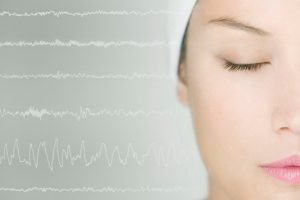What Is A Sleep Study?
July 27, 2017

As we pass through life’s stages, trials, and tribulations, we inevitably encounter circumstances and situations that affect the quality of our sleep. Overall health, age, lifestyle, habits, and other factors all play a part in sleep health and our ability to get a good night’s rest.
Undiagnosed and untreated sleep problems can lead to a variety of chronic health concerns, including hypertension, heart disease, high blood pressure, diabetes, and stroke. For this reason, it’s important to incorporate a sleep study into your periodic health evaluations, just as you would a blood pressure screening. Early detection and treatment is key to reducing or eliminating the risk of developing associated health issues.
What is a sleep study?
A sleep study measures various biological, neurological, and physiological processes that occur during sleep. It determines if there is an abnormality that could indicate the presence of a sleep disorder. In the case of sleep apnea, for example, the study will measure how many times the patient stops breathing for 10 seconds or longer per hour, which indicates not only the presence of the disorder, but also its severity.
There are two types of sleep studies used to diagnose sleep disorders: polysomnogram (PSG) and home sleep apnea testing (HSAT). Both types of studies are non-invasive and virtually painless.
A polysomnogram (PSG) is an in-lab sleep study that requires an overnight stay in a testing facility. PSGs are performed by registered polysomnographic technologists (RPSGT). The technologist utilizes a series of strategically placed monitors and electrodes to track the brain, eyes, heart, breathing patterns, carbon dioxide and oxygen levels, and other biological functions.
Home sleep apnea testing (HSAT) is a portable monitor that allows the patient to test in the comfort of his/her home. The healthcare professional overseeing the patient will give a demonstration on proper usage of the device, then the patient will complete the study at home and send or physically transport the device back to the office for analysis.
Both types of sleep studies are effective for the diagnosis of sleep breathing disorders, of which the most common is obstructive sleep apnea (OSA). However, the HSAT’s diagnostic capability is limited to sleep breathing disorders, whereas PSGs are also able to detect other types of sleep disorders.
A sleep physician will consider your symptoms, as well as other factors, to determine which of the two tests will best serve to provide an accurate reading and diagnosis.
How do I know if I need a sleep study?
Fatigue, particularly chronic fatigue, impacts every aspect of your life, from your health to your performance at work and your personal relationships. It also has a major impact on your ability to perform everyday tasks, such as driving. According to the National Highway Traffic Safety Administration, approximately 100,000 police-reported crashes are the direct result of driver fatigue each year.
Strongly consider talking to your doctor about undergoing a sleep study if you experience any of the following:
- Trouble falling or staying asleep
- Snoring, especially loud, persistent snoring
- Gasping or pauses in breathing
- Restless or “active” legs at night
- Exhaustion that impacts daily functions
- Fatigue that lasts for several week
- Frequent nighttime urination
- Nighttime sweating
What is the result of a sleep study?
After your sleep study is completed, the data will be reviewed to identify any prevalent sleep issues that need to be addressed. If a sleep disorder or problem is uncovered, your doctor will discuss treatment options with you.
If your sleep study indicates that you suffer from sleep apnea, you will want to consider all treatment options available, and make a decision based on your situation and lifestyle.
Remember, early diagnosis and treatment is essential to restoring your ability to get quality sleep and reducing the risk of developing associated health problems. Make periodic sleep studies a part of your health maintenance plan, and be sure to let your doctor know of your intention.
No Comments
No comments yet.
RSS feed for comments on this post.
Sorry, the comment form is closed at this time.
